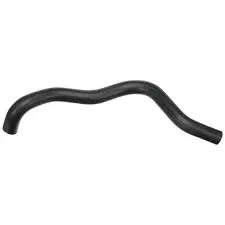rubber brake pipe
Dec . 05, 2024 03:38 Back to list
rubber brake pipe
The Importance of Rubber Brake Pipes in Automotive Safety
In the intricate world of automotive engineering, every component plays a vital role in ensuring the safety and efficiency of a vehicle. Among these components, rubber brake pipes, often overlooked, are crucial in the braking system. These pipes, also referred to as brake hoses, are responsible for transporting brake fluid from the master cylinder to the brake calipers or wheel cylinders. Their significance cannot be overstated, as they directly influence the vehicle's braking performance and overall safety.
Composition and Functionality
Rubber brake pipes are made from a combination of synthetic rubber and reinforcing materials to withstand high pressure and prevent leakage. A typical brake system consists of several components, and the brake pipes serve as conduits for hydraulic pressure. When a driver presses the brake pedal, the master cylinder generates pressure by compressing the brake fluid. This hydraulic force is transmitted through the rubber brake hoses, allowing the brake components at each wheel to engage and slow down or stop the vehicle.
The flexibility of rubber hoses is essential for accommodating the movement of the suspension and steering systems. As the vehicle moves, the suspension compresses and extends, which means the brake pipes must be able to flex without leaking or breaking. This flexibility is one of the advantages of rubber brake pipes over rigid metal lines, which can crack and fail under stress.
Durability and Maintenance
While rubber brake pipes are designed to be durable, they are not immune to wear and tear. Factors such as exposure to extreme temperatures, road debris, and chemical contaminants can degrade the rubber material over time. Additionally, age plays a significant role; rubber can become brittle and develop cracks, leading to a potential failure in the braking system.
Proper maintenance of rubber brake pipes is essential for vehicle safety. Regular inspections should include checking for signs of wear, cracks, or leaks. It's advisable to replace brake hoses every four to six years or as recommended by the vehicle manufacturer. Using original equipment manufacturer (OEM) parts during replacement ensures that the new hoses will meet the same standards as the original ones.
rubber brake pipe

Environmental Impact and Innovations
The production and disposal of rubber brake pipes also pose environmental concerns. The rubber used is often derived from petroleum products, which raises questions about sustainability. However, advancements in technology and materials science are paving the way for more eco-friendly solutions. For example, some manufacturers are exploring the use of biodegradable materials and synthetic rubber variants that offer similar performance without the environmental footprint.
Industry Standards and Regulation
To ensure the reliability and safety of rubber brake pipes, several industry standards and regulations have been established. Organizations such as the Society of Automotive Engineers (SAE) and the Department of Transportation (DOT) in the United States set parameters for the performance of brake hoses. These standards cover aspects like pressure resistance, temperature tolerance, and durability to ensure that all components meet stringent safety criteria.
Conclusion
Rubber brake pipes may seem like a small part of the larger braking system, but their importance cannot be overstated. They are integral to the safe operation of any vehicle, providing the necessary connection between various components of the brake system. As automotive technology continues to evolve, so does the material used in brake hoses, with a focus on improving durability and environmental sustainability.
Ultimately, responsible vehicle ownership includes regular maintenance and timely replacement of rubber brake pipes. By ensuring that these hoses are in good condition, drivers can significantly reduce the risk of brake failure, thus enhancing the overall safety of themselves and others on the road. In an era where automotive safety is more critical than ever, rubber brake pipes must be seen as a vital component of vehicle engineering, deserving attention and respect from both manufacturers and drivers alike.
